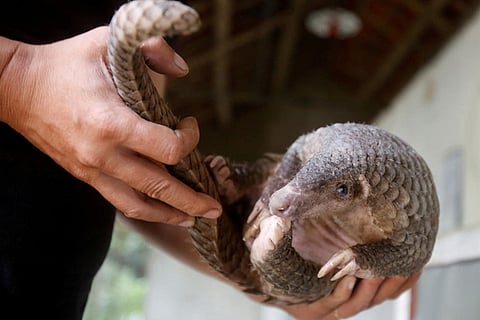

Chennai
For environmental economist Pavan Sukhdev, a former high-level banker, the coronavirus crisis has made it clearer than ever that a dramatic shift in our relationship with the natural world is urgently needed. He argues that pandemics like this one could be nature’s response to its exploitation, and a way to redress the balance. Excerpts from an interview:
Instinctual response of earth
This is the fourth of the major virus attacks that we’ve had (after SARS, H1N1 and MERS), all sort of jumping from animal systems into human systems. Maybe the system is telling us something, and it’s trying to keep itself in check. We are the main cause of the disturbance, we are the ones who are destroying forests, covering up wetlands, intruding into the world of wild animals, and basically making them part of our food system. Well, the system may be adjusting by releasing more viruses. That’s the basic idea.
Future world economy
It’s a circular economy; an economy that, in the process of generating wealth for humans, doesn’t generate costs at the same time, in terms of human capital, social capital and natural capital. Another name for it would be a green and equitable economy of permanence. Green, because it’s not causing huge stresses on the environment; equitable, because its socially balanced, it’s not just very rich and very poor people.
But that’s at the macroeconomic level, the system level. What about the microeconomic level? Well, guess what? The single most important agent at the microeconomic level, basically, is the corporation. Two thirds of the economy today, globally on average in terms of who generates the GDP and who generates the jobs, basically is the private sector. So the question is: what can the corporation — which is the biggest engine of today’s economy — do differently?
They (corporations) basically ignore the fact that they are not just a machine to make money for shareholders, but also a huge institution because they are training and developing thousands and maybe hundreds of thousands of staff, so they are potentially creating human capital, they are also big engines of natural destruction, so they are mining, destroying forests, basically cutting, digging and burning. Can they do less of that? Can they be more efficient? Can they not do it in places where there are extremely scarce forms of biodiversity in existence? And finally, are they ruining social fabric, or are they building social fabric?
In other words, are they collaborating with their suppliers, with their customers, with the government to whom they pay taxes? Or are they always trying to nickel and dime the suppliers, are they always trying to sell rubbish expensively to their customers and use aggressive marketing and advertising to prey on human insecurities and convert them into wants, wants into needs, needs into demand, demand into production, production to profit?
Human nature and greed
We are greedy — and some of that greed generates innovation, so it’s not a bad thing, but the point is, you can’t have unchecked and unbridled greed. So we need checks and balances, and that’s what we’re not doing. Remember, the whole world is not only about private wealth. The whole world is not a marketplace. We do have families, we do have friends, we do have communities, and we don’t measure their value in terms of profits or dollars. And that’s fine, we measure their value in different ways. Nature also provides a lot: you can estimate the economic cost you will incur by losing nature’s services. The blind pursuit of profit at the expense of all else — it’s simply a fool’s dream. And sadly, we seem to have believed it.
— This article has been provided by Deutsche Welle (DW/dw.com)
Visit news.dtnext.in to explore our interactive epaper!
Download the DT Next app for more exciting features!
Click here for iOS
Click here for Android